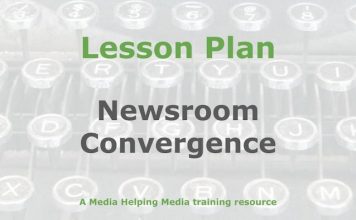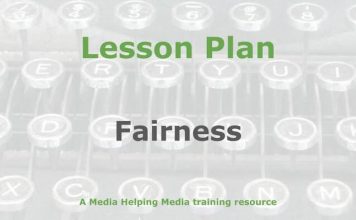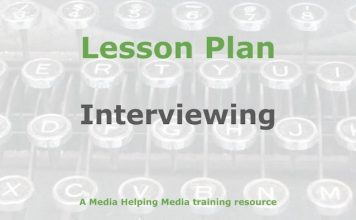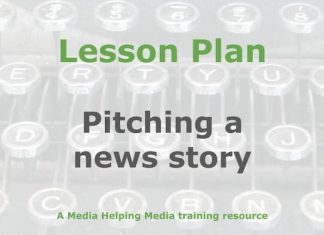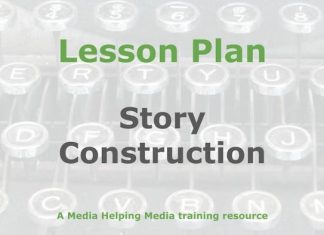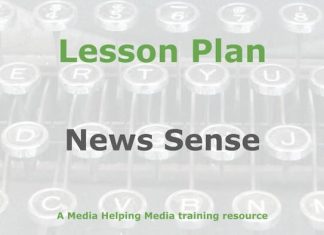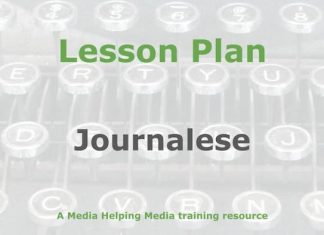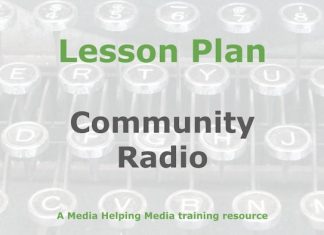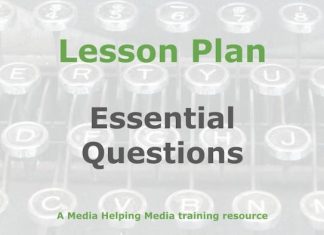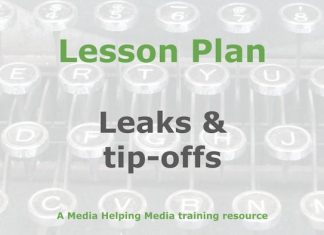Lessons
Our free day-long lessons provide comprehensive, in-depth training on specific journalism topics. Each structured lesson includes theoretical foundations, practical exercises, real-world examples, and assessment tools, offering complete teaching packages for trainers or intensive self-study for journalists. All our material is free to download, adapt and use. Scroll down our site map for all the content in this and other sections.
Lesson: Pitching a news story to an editor
This lesson plan provides a comprehensive guide to the essential skill of pitching a news story idea to an editor.
Lesson: How to create a structured news report
This lesson plan is designed to help students understand how to construct a news report so that it is easily understood by the reader.
It's...
Lesson: Developing and applying news sense
Developing a news sense in order to spot a story's importance to the audience.
Lesson: Clichés, journalese, and jargon
This lesson plan is designed to enable journalism trainers to teach students the importance of avoiding clichés, journalese, and jargon in their writing.
Lesson: Preparing for and carrying out an interview
This lesson plan is designed to teach students how to carry out an interview in a way that reveals new and important information.
Lesson: Setting up community radio
This lesson is designed to help participants learn how to plan, set up, and manage a community radio station serving a specific audience with a unique editorial proposition.
Lesson: The questions every journalist should ask
This lesson plan teaches students about the six essential questions - What? Why? When? How? Where? and Who?
Lesson: Handling story leaks and tip-offs
This one-day lesson plan is designed to teach students how to deal with story leaks and tip-offs. It's free for journalism trainers to download and adapt for their own purposes.
You might also like
Story development techniques
Journalists need to look for related stories, angles, or missing pieces of a story in order to help the audience understand the importance of the issue being covered.
Climate change glossary
The following is a list of some of the common climate change terms used by scientists, environmental agencies, governments, activists, and journalists.
Lesson: Gender equality in news production
A lesson plan is designed to help journalists understand the need to avoid stereotypes in their news writing.
